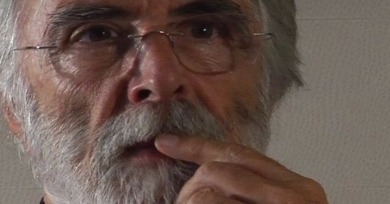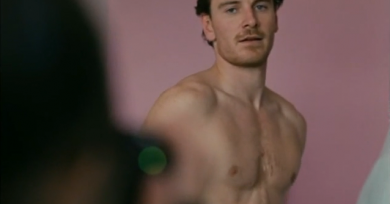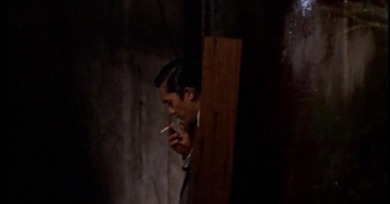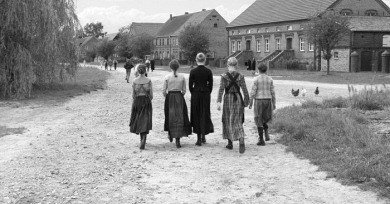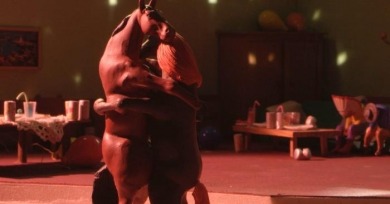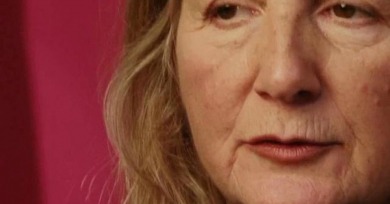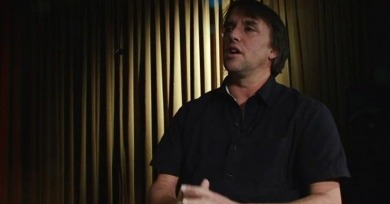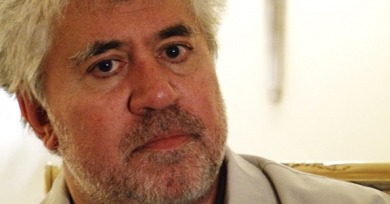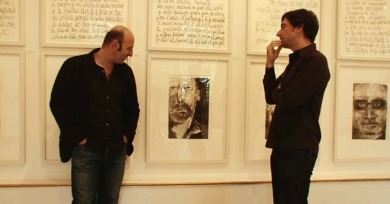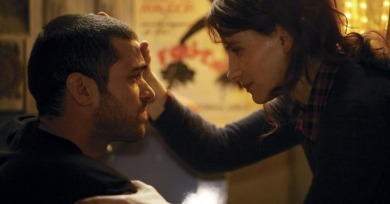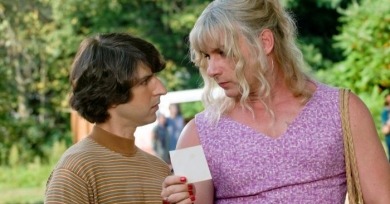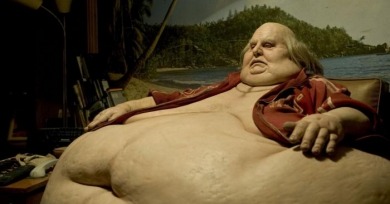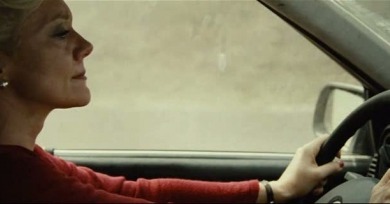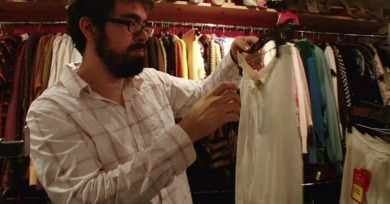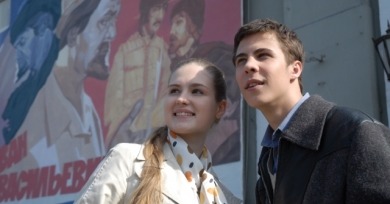Eric Hynes
Reverse Shot's Damon Smith talks to Michael Haneke (The White Ribbon) about the nature of evil and the ethics of spectatorship. Robert Gray translated from German.
Her two films are as unsentimental as they are sensitive, and so attuned to the messy modalities of behavior that even tallies of fear and heartbreak accumulate with dignity.
It has remained one of the most shattering moviegoing experiences of my life. In my recollection, and that of many others, the film is the consummate tale of unconsummated love.
Despite his genre play, Haneke doesn’t care about isolated crimes or mysteries. Personal guilt is (here literally) child’s play. The big culprit, as usual, is the monster called society.
Eric Hynes visits Central Park with Camera D'or-winning director Corneliu Porumboiu (Police, Adjective), who talks about labyrinths of space and time, and what's so funny about nothing happening.
The joy of watching A Town Called Panic lies in its uncanny evocation of adolescent invention. It’s an overturned toy box of a movie, complete with mismatched action figures, improvisatory effects, and stream-of-consciousness storytelling.
Reverse Shot's Damon Smith talks with award-winning British director Sally Potter (Orlando, Yes) about her new made-for-mobile film Rage.
Richard Linklater (School of Rock, Slacker) talks to host Eric Hynes about Orson Welles, idealism v. cynicism, and his grade school production of "Julius Caesar."
"I remember in my childhood telling stories to my sisters and I was continuously fabulada, making fables, narrating. So my first vocation and my ultimate vocation is to narrate and tell stories."
There’s something satisfying about seeing such an odd, ugly duck on American multiplex screens this weekend. It will undoubtedly be the only film playing in which the protagonist is introduced calling a drowning man a “shitbird” and a “shit-turd.”
Acclaimed filmmaker Pedro Almodóvar (Talk to Her, All About My Mother) talks with host Eric Hynes about his love for words, close-ups, Ingmar Bergman, and endings.
Much can be said about the concept and implications of globalization. That it’s good for corporations, indifferent to local economies and cultures, rough on the working class. Here’s another: globalization inspires very bad art.
Host Eric Hynes wanders the halls with director Cedric Klapisch (L'Auberge espagnole, Paris) at the French Cultural Embassy in New York, chatting about Juliette Binoche, city life, and the art of cliché.
The films of Cedric Klapisch are easy to dismiss. They seem a bit too slick of surface and shallow of meaning. They’re comfortably tucked between entertainment and art, between slumming intelligence and vainglorious style.
While some would call it middlebrow, I prefer to think of the Lee-Schamus project as classical. Director Ang Lee and screenwriter-producer James Schamus construct traditionally plotted stories in which characters struggle to be, become, and love.
Although each section could work as a freestanding piece, Palfi invites the viewer to recognize visual and textual rhyme, and he modulates tone within as well as between the sections.
In each of Martel’s first three features, a mysterious incident confounds characters and viewer alike, setting a tone that the Argentine director sustains yet also narratively subverts.
Eric Hynes chats with Andrew Bujalski (Beeswax) about his indie-film dramas at a vintage-clothing store in Manhattan.
The Vladimir Putin era has seen its share of time capsule cinema, films that revisit the recent Soviet past to interrogate or rehabilitate Russian identity.
Host Eric Hynes chats with Duck Season and Lake Tahoe director Fernando Eimbcke about the pleasures of sound, static compositions, and black frames while trying to find the perfect shooting location within New York’s Chelsea Piers.
